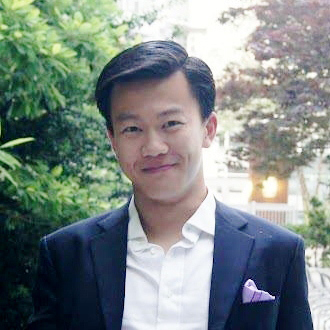by Panxin Jiang, W’13
Every semester around the time OCR rolls around, I discover that suddenly, a portion of my friends start disappearing from my Facebook chats and messages and these new contacts appear. We always hear horror stories about how employers checked up on a person’s Facebook profile and decided to not hire them or to retract their offer as a result of what they find. As a result, a number of people modify their names so that prospective employers would be unable to find them using social media.
However, what people need to realize is that you aren’t only recruiting during recruiting season. Headhunters and companies are constantly taking names and reaching out to prospective employees. We all have friends working for other companies who might suggest your name when a position becomes available. Recruiting does not just occur when you are actively seeking a job, but also at times when you least expect it. Because of this, shouldn’t our online profiles reflect our best every day and not just days where we are actively seeking a job?
Our generation grew up in a world filled with social media. We are accustomed to posting photos on Facebook and tweeting our feelings on Twitter at our whim. In fact, it is difficult for me to imagine a time where we could not connect with friends via Facebook or Twitter. I often find myself deactivating from Facebook only to reactivate my profile a few hours later. And while there may be a number of benefits that social media brings into our lives, such as connecting with childhood friends who we haven’t seen in years and who live across the country, there are a number of disadvantages that we need to be wary of.
What you put on your Facebook, LinkedIn, Twitter, Google Plus, or any other form of social media will stay with you forever. You might put up a potentially risqué photo only to take it down a few seconds later because of the nature of the photo. However, in the time it took you to delete it, a person, maybe a prospective employer, may have downloaded that photo onto their computer. Once you upload a photo onto the internet, you lose control of who has access to that photo.
Privacy settings may help, but in a world where we all know someone who knows someone, all it takes is a favor and everything on your profile could be leaked out to a company. Because of this, the best way to avoid having potentially damaging photo appear on your profile on any other social media site is to not put it out there for the world to see.
So, the next time you log into any social media platform that you use, look at your profile and think about whether it really reflects who you are and whether your profile is what you want portrayed about you. Who knows, it might even impress someone and land you a job.
 Panxin Jiang is a senior at the Wharton School concentrating in Accounting, Finance, and Real Estate. Asides from social media, she enjoys shopping, cooking, baking, and exploring all that Philly has to offer. You can find her on LinkedIn, Pinterest, and Facebook.
Panxin Jiang is a senior at the Wharton School concentrating in Accounting, Finance, and Real Estate. Asides from social media, she enjoys shopping, cooking, baking, and exploring all that Philly has to offer. You can find her on LinkedIn, Pinterest, and Facebook.


 Gerald is a sophomore studying in the Huntsman Program in International Studies and Business. Besides his Romanian and Hungarian skills he is fluent in Spanish and is now studying Portuguese. He is the Academic Relations VP for Wharton Europe, is part of the CURF Student Advisory Board and also serves on the Career Services Advisory Board.
Gerald is a sophomore studying in the Huntsman Program in International Studies and Business. Besides his Romanian and Hungarian skills he is fluent in Spanish and is now studying Portuguese. He is the Academic Relations VP for Wharton Europe, is part of the CURF Student Advisory Board and also serves on the Career Services Advisory Board. Recruiting is undergoing a vast phase change and one of the primary reasons for this reinvention is the advent of social media and its profound impact on society and people. Social networking is no longer just about webpages; it is an ever growing experience enriched with the interactions between people. Here are some ways to use social media to prepare for the career fairs next week, and in your general search.
Recruiting is undergoing a vast phase change and one of the primary reasons for this reinvention is the advent of social media and its profound impact on society and people. Social networking is no longer just about webpages; it is an ever growing experience enriched with the interactions between people. Here are some ways to use social media to prepare for the career fairs next week, and in your general search.